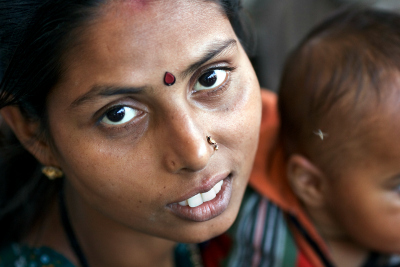 On December 3, 2014, the Supreme Court of the United States of America heard the case of Young v. United Parcel Service, a case filed by Peggy Young of Maryland. An employee of the respondent company, she was placed on unpaid leave when she became pregnant in 2006, resulting in the loss of her medical benefits. A district judge and the U.S. Court of Appeals have already ruled in favour of the shipping company, but activists in favour of Young are hopeful that the Supreme Court will take a different stand on the issue.
On December 3, 2014, the Supreme Court of the United States of America heard the case of Young v. United Parcel Service, a case filed by Peggy Young of Maryland. An employee of the respondent company, she was placed on unpaid leave when she became pregnant in 2006, resulting in the loss of her medical benefits. A district judge and the U.S. Court of Appeals have already ruled in favour of the shipping company, but activists in favour of Young are hopeful that the Supreme Court will take a different stand on the issue.
While the Court ponders the issue, let us look closer home. What has been the stand of the Supreme Court of India on the issue of maternity leave and benefits?
Invasive questionnaires
In Mrs. Neera Mathur v. Life Insurance Corporation of India, the petitioner’s employment with the LIC was terminated after she returned from maternity leave. The reason given was that she had withheld information about her pregnancy in a questionnaire she had filled out at the time of her appointment. After a perusal of the questionnaire, the Supreme Court found that it required female candidates to provide information about the dates of their menstrual cycles and past pregnancies. The Court held that the questionnaire was an invasion of privacy and directed the LIC to reinstate the petitioner and delete the offending columns from its future questionnaires.
Consider Sundays and unpaid holidays for computing period of work to qualify for maternity benefits
 In Ram Bahadur Thakur (P) Ltd. v Chief Inspector of Plantations, a female worker employed at the Pambanar Tea Estate was denied maternity benefits on the grounds that she had actually worked for 157 days instead of the 160 days required to qualify for them. The Supreme Court, however, held that for the purposes of computing maternity benefits, all days including Sundays and unpaid holidays must be taken into consideration.
In Ram Bahadur Thakur (P) Ltd. v Chief Inspector of Plantations, a female worker employed at the Pambanar Tea Estate was denied maternity benefits on the grounds that she had actually worked for 157 days instead of the 160 days required to qualify for them. The Supreme Court, however, held that for the purposes of computing maternity benefits, all days including Sundays and unpaid holidays must be taken into consideration.
Daily wagers must get benefits too
 In Municipal Corporation of Delhi v. Female Workers’ (Muster Rolls) and Another, the Municipal Corporation of Delhi stated that it granted maternity leave to its regular female workers but not to the daily wage ones, that is, the ones on the muster rolls. The respondents argued that the practice was unfair as there was hardly any difference in the work allotted to female workers who were regular and those who were on daily wage. Accepting the contention, the Supreme Court upheld the right of female construction workers to be granted maternity leave by extending the scope of the Maternity Benefits Act, 1961 to daily wage workers.
In Municipal Corporation of Delhi v. Female Workers’ (Muster Rolls) and Another, the Municipal Corporation of Delhi stated that it granted maternity leave to its regular female workers but not to the daily wage ones, that is, the ones on the muster rolls. The respondents argued that the practice was unfair as there was hardly any difference in the work allotted to female workers who were regular and those who were on daily wage. Accepting the contention, the Supreme Court upheld the right of female construction workers to be granted maternity leave by extending the scope of the Maternity Benefits Act, 1961 to daily wage workers.
Two years uninterrupted childcare leave
In a landmark case last year, Kakali Ghosh v. Chief Secretary, Andaman & Nicobar Administration and Others, the main question was whether a female employee of the Central Government could ask for 730 days of uninterrupted child care Llave under the Central Civil Services (Leave) Rules, 1972. Justices S.J. Mukhopadhaya and V. Gopala Gowda of the Supreme Court held that a female employee of the Central Government is entitled to two years uninterrupted leave for childcare, which may also include illnesses and schoolwork. It held that the judgment of the Calcutta High Court, Circuit Bench at Port Blair was ignorant of the rules framed by the Central Government and directed the respondents to comply with the directions issued by the Central Administrative Tribunal, Calcutta, Circuit Bench at Port Blair.
